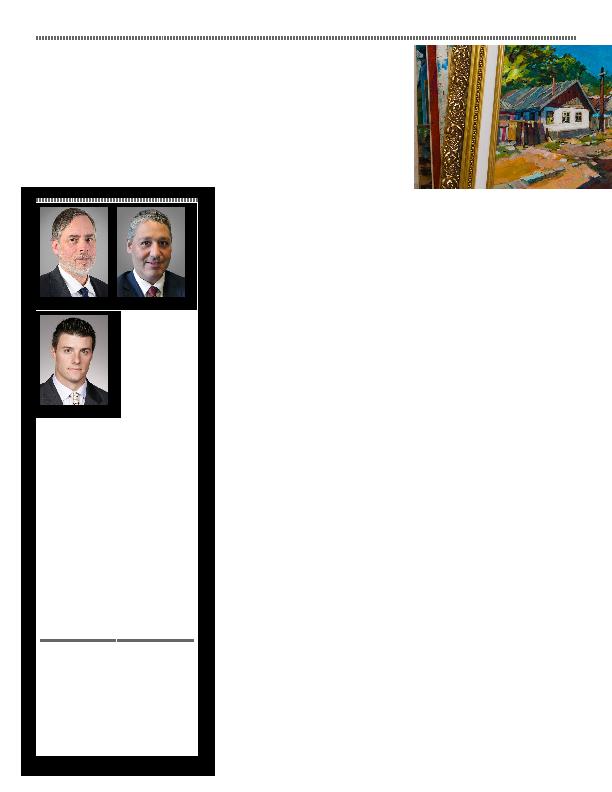
leasebacks and art financing looks
irresistible from a distance. However,
a recent New York appellate decision
(Shagalov v. Edelman, 161 A.D.3d 455
(N.Y. App. Div. 2018) obtained by our
firm not only highlights the danger of the
merger, but also establishes a precedent that
should caution financiers when using sale-
leasebacks.
Sale-leasebacks are a well-accepted
method of corporate financing, particularly
for real estate and machinery. In sale-
leaseback financing, the asset owner sells it
to a financing source, which in turn leases
the asset back to the original owner. The
original owner becomes the lessee while
the financier becomes the lessor. While
corporate debt involves loans that impact
the balance sheet or the sale of equity,
which lessens ownership, a sale-leaseback
avoids both drawbacks. It has been noted:
"This is much like the corporate version of
a pawnshop transaction."
sale-leaseback and a pawnshop loan. If one
pawns an item, the pawnshop keeps the item
as collateral. In the standard sale-leaseback,
the original owner traditionally maintains
possession of the asset that he sells.
Since the sale-leaseback is a financing
device, the lessor bears a risk. Should the
lessee file for bankruptcy, the transaction
could be recharacterized as a secured loan
and the lessor's title to the property would
be challenged. See In re Ajax Integrated,
LLC, 554 B.R. 568, 577 (Bankr. N.D.N.Y.
2016). However, we are unaware of any case
where the debtor himself ever challenged a
transaction (until we did).
or machinery, many major art purchases
require financing. Potential buyers who
seek to acquire pieces beyond their present
means may use financing to purchase pieces
for their collections or hoping to flip the
piece after an increase in value. Art dealers
use loans to finance their inventories. Other
owners use art as collateral to establish a
line of credit. Indeed, various businesses
and wealthy individuals have begun
using art financing as a means of funding
investments in more traditional businesses.
With private lenders (like our client Art
Finance Partners), banks and the auction
houses all taking active roles, art financing
has become an incredibly important
component in the art market.
Like sale-leasebacks, art financing has
been described as pawnshop transactions.
In fact, the New York Times article about art
financing was entitled "That Old Master?
It's at the Pawnshop."
to control the collateral. Art lenders are
often lenders of last resort and defaults
are not uncommon. If the lender can take
possession of the art, it is available to be
sold in the case of default. Further, if the
lender takes possession of the art during
the life of the loan, the risk that the art will
be double pledged after the loan is made is
minimized.
not use the sale-leaseback structure to
finance art purchases? The benefits for the
entity providing financing are apparent.
Where a sale-leaseback structure is used,
the financier does not have to abide by the
requirements of Article 9 of the Uniform
Commercial Code which are applicable
who has represented such diverse clients as the
National Basketball Association, Art Finance Partners,
the American Society of Travel Advisors, Sauder
Furniture, La-Z-Boy and Underwriters Laboratories.
Barton LLP. His practice spans all aspects of complex
litigation in a vast array of industries, including art,
financial services, manufacturing, media, medical
device, pharmaceutical and safety products.
assists his clients with complex financial and
commercial litigation matters. He has successfully
represented Fortune 100 companies, small businesses
and individuals in breach of contract cases, trademark
and patent disputes, and employment matters.
711 Third Avenue
14th Floor
New York, New York 10017
jcohen@bartonesq.com
mward@bartonesq.com
bartonesq.com